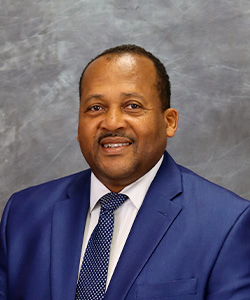Council-Manager Form of Government
According to the International City/County Management Association*, the council-manager form of government combines the strong political leadership of elected officials with the strong managerial experience of an appointed Village manager. All power and authority to set policy rests with an elected governing body, the Village council. The council in turn hires a nonpartisan manager who runs the organization. Since its establishment, the council-manager form has become the most popular structure of local government in the United States.
How it Works
The elected Village council members represent their community and develop a long-range vision for its future. They establish policies that affect the overall operation of the community and are responsive to residents’ needs and wishes. To ensure that these policies are carried out and that the entire community is equitably served, the governing body appoints a professional manager on the basis of his/her education, experience, skills, and abilities (and not their political allegiances). If the manager is not responsive to the governing body, it has the authority to terminate the manager at any time.
A Village benefits from the council-manager form of government in a number of important ways:
- • Political power is concentrated in the entire governing body. The mayor and council share legislative functions.
- • Policy making resides with elected officials, while oversight of the day-to-day operations of the community resides with the manager. In this way, the elected officials are free to devote time to policy planning and development.
- • The manager carries out the policies established by the elected governing body with an emphasis on effective, efficient, and equitable service delivery.
- • Because decisions on policy and the future of the community are made by the entire governing body rather than a single individual, council-manager governments more often engage and involve their residents in decision-making. Residents guide their community by serving on boards and commissions, participating in visioning and strategic planning, and designing community-oriented local government services.
Village Council’s Role
The Village council is the community’s legislative and policymaking body. Power is centralized in the elected council, which, for example, approves the budget and determines the tax rate. The council also focuses on the community’s goals, major projects and such long-term considerations as community growth, land use development, capital improvement and financing and strategic planning. The council hires a professional manager to implement the administrative responsibilities related to these goals and supervises the manager’s performance.
Mayor’s Role
In council-manager communities, the mayor is a voting member of the Village council who presides at council meetings, represents the Village in intergovernmental relationships, appoints members of citizen advisory boards and commissions (with the advice and consent of council), assigns agenda items to committees, facilitates communication and understanding between elected and appointed officials and assists the council in setting goals and advocating policy decisions.
Village Manager’s Role
The Village manager is hired to serve the council and the community and brings to the local government the benefits of his/her training and experience in administering municipal projects and programs. The manager prepares a budget for the council’s consideration; recruits, hires, terminates, and supervises government staff; serves as the council’s chief advisor; and carries out the council’s policies. Council members and residents count on the manager to provide complete and objective information about local operations, discuss the pros and cons of alternatives and offer an assessment of the long-term consequences of their decisions. The manager makes policy recommendations to the council for consideration and final decision. The manager is bound by whatever action the council takes, and control is always in the hands of the elected representatives of the people. Appointed managers serve at the pleasure of the governing body. They can be fired by a majority of the council, consistent with local laws, or any employment agreements they may enter into with the council.

Esmond K. Scott
Village Manager
ScottE@msvfl.gov
Andrea Henry
Assistant to the Village Manager
HenryA@msvfl.gov
